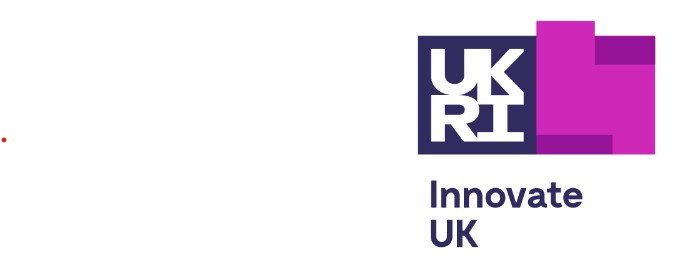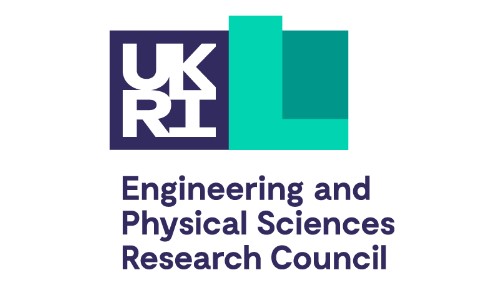Group
Computational Intelligence and Applications Research Group (CIA)
Unit(s) of assessment: Computer Science and Informatics
School: School of Science and Technology
Welcome to CIA
Computational Intelligence and Applications (CIA) Research Group at Nottingham Trent University is conducting research on computationally intelligent methods and techniques for real-world applications targeting enhanced living and society.
The CIA Research Group has expertise in the analysis and use of methods from the field of artificial intelligence, such as artificial neural networks, evolutionary algorithms and data analysis to solve real-world problems from science and engineering. The research group has also expertise in smart environments, ambient assistive technologies, pervasive computing, intelligent modelling, control and robotics.
The Research Group has access to research facilities, including high-performance computing, a variety of sensors, actuators and communication devices, different assistive robotic platforms and a smart home facility.
Our Focus
- Artificial Intelligence (AI) Applications
- Machine Learning (ML) Tools and Techniques
- Deep Learning and Transfer Learning
- Generative Adversarial Networks (GAN)
- Smart Environments and Ambient Intelligence (AmI)
- Independent Living
- Assistive Robotics
- Abnormality Detection
- Quantum Computing
- Sustainable Computing
- Internet-of-Everything-Everywhere (IoE2)
The research group seeks to address the challenges which require computationally intelligent methods and techniques for real-world applications that can make a difference in lives and society, including:
- Support independent living of older adults by means of equipping homes with sensor networks to monitor system user behaviour.
- Provide assistive solutions to patients suffering from mild cognitive impairment.
- Assistive robotics application to help with independent living.
- Providing technological solutions that promote a sustainable environment, in accordance with UK and UN strategies and targets concerning issues such as net-zero emissions and sustainable production in industry, agriculture and forestry.
- Digital Ecosystems
We are looking to generate research income through EPSRC, InnovateUK, NIHR, EU Horizon and other industrial partners.
Core services we offer include:
- Consultancy services to help businesses and organisations implement artificial intelligence technologies, develop strategies, and identify opportunities.
- Analyse large amounts of data and develop models to extract insights from that data. Our expertise is mainly in analysing the data related to healthcare.
- Develop and train machine learning and deep learning models to be used for a variety of applications, including image recognition, natural language processing (NLP), and speech recognition.
- Develop and implement robotics and automation technologies. Considering the diversity in the application of robotics, our expertise is the area of assistive robotics.
- Develop computer vision technologies, including object recognition, facial recognition, and image analysis.
- Help businesses and organisations navigate the ethical and governance challenges associated with AI technologies.
Our team
Professor Ahmad Lotfi
Email: ahmad.lotfi@ntu.ac.uk
David Adama
Senior Lecturer
Computer Science
Jordan J. Bird
Senior Lecturer
School of Science & Technology
Ismahane Cheheb
Lecturer
School of Science & Technology
Joao Filipe Ferreira
Senior Lecturer
School of Science and Technology – Computer Science
Dr Isibor Kennedy Ihianle
Senior Lecturer
Computer Science
Pedro Machado
Senior Lecturer
Computer Science
Jon Robinson
Principal Lecturer
Computer Science
Neil Sculthorpe
Senior Lecturer
Computer Science
Amir Pourabdollah
Senior Lecturer
Computer Science
Salisu Yahaya
Senior Lecturer
Computer Science
Abdallah Naser
Lecturer
School of Science & Technology
SmartNTU (Smart Home):
A typical home instrumented with a range of sensors; detecting everything from the opening of a cupboard to getting up from bed. Data is logged continuously so that it can be processed and evaluated. All sensor data are stored in a dedicated server which can be accessed remotely. Experiments can be conducted over a period of hours or even days, as this is a fully functional home.
Hydra Cluster
The Hydra High Performance Computing (HPC) facility is made out of 320 Field Programmable Gate Array’s (FPGA’s) and networked control computers. The facility is a reconfigurable HPC system which can be used for numerous highly parallelised applications.
Assistive Robots
A robot arena with state-of-the-art assistive robotic platforms (e.g. iit iCub, SoftBank Pepper, SoftBank NAO, Temi, Rethink Baxter, Rethink Sawyer, Double 3) with specialist computing labs including networking, security, games, data science and high-performance computing.
Robots
In addition to the assistive robots, the group has access to the following robot platforms as well:
- FIFISH V6 VR Underwater Rov Robot
- Universal Robot UR5
- Unitree Go1
Selected Partners and Collaborators
The number of partners addresses NTU’s research strategy by focusing research and is external facing, with the potential to provide high quality outputs. The PhD experience is significantly enhanced by providing real world, high impact research projects to potential students.






- Tokyo Metropolitan University, Japan
- University of Coimbra, Portugal
- Institute of Systems and Robotics, Portugal
- Instituto Pedro Nunes, Portugal
- Nottinghamshire Wildlife Trust
- Environment Agency
- Trent Rivers Trust
- NTU Smart Wireless Innovation Facility (SWIFt)
Group Projects
Intelligent Care Guidance and Learning Services Platform for Informal Carers of the Elderly (iCarer)
The iCarer project developed a personalised and adaptive platform to offer informal carers support by means of monitoring activities of daily care, as well as their psychological state, and providing an orientation to help them improve the care provided. Monitored information will be registered by means of home-installed and personal sensors, which will be as inconspicuous as possible for the house inhabitants.
Energy Efficiency in Social Housing
Nottingham City Homes (NCH), in partnership with Nottingham Trent University (NTU) has conducted this research to better understand energy usage in social housing. The project aims to monitor energy usage of a sample of current NCH housing stocks.
Underwater Plastic Detection
Plastics thrown away by humans are normally transported to the oceans by rivers. It is not clear how much plastic is transported every year from land to sea because of a lack of metrics and standard monitorisation techniques.
Digital Displays of Nature to Improve Mental Health
Use of biophilic design and smart environments to recognise the human instinct to connect with nature and the mental health benefits this can bring, such as reducing stress, anxiety and depression, and improving cognitive function.
Quantum Intelligence Research
We recognise the great potential of the massive parallelism provided by Quantum Computing in the near future. The research on Quantum Intelligence in CIA focuses on exploring the new advancements of AI-Quantum hybrid methods that can lead to novel real-world intelligent systems in (but not limited to) smart living, cryptography, finance, and chemical structure design. The research has also extended to quantum-inspired algorithms where High-Power Computers (e.g., our Hydra Cluster facilities or cloud-based resources) are being used as simulation platforms for quantum intelligence.
CIFAKE - Classification and Explainable Identification of AI-Generated Synthetic Images
AI-generated images have rapidly improved recently, and the ability to detect them is becoming a critical necessity to ensure the authenticity and trustworthiness of image data. AI models have even beaten humans in art competitions!
Signature Verification
Machine learning is often employed to detect real and forged signatures. However, robotic arms and generative models can overcome these systems and mount false-acceptance attacks. Our research results show that there are exclusive behaviours to human and robotic forgers, suggesting that a system trained wholly on human forgeries can be easily attacked by robots to gain false-positive verification. The results after fine-tuning are effective, showing that such attacks can be prevented now, rather than after the first consumer robot-based forgery crime has been committed.
Fall Detection and Privacy-preserving Human Behaviour Monitoring Through Thermal Vision
Thermal Sensor Array (TSA) in combination with appropriate Computational Intelligence techniques, can be used as an approach for a low-cost, non-contact, and privacy-preserving human behaviour monitoring.
Group research output
Peer Reviewed Journal Publications (within last 5 years)
- BIRD, J.J., NASER, A. and LOTFI, A., 2023. Writer-independent signature verification; evaluation of robotic and generative adversarial attacks. Information Sciences, 633, pp. 170-181.
- MACHADO, P., FERREIRA, J.F., OIKONOMOU, A. and MCGINNITY, T.M., 2023. NeuroHSMD: neuromorphic hybrid spiking motion detector. ACM Transactions on Reconfigurable Technology and Systems.
- MAGALHÃES, S.C., SANTOS, F.N., MACHADO, P., MOREIRA, A.P. and DIAS, J., 2023. Benchmarking edge computing devices for grape bunches and trunks detection using accelerated object detection single shot multibox deep learning models. Engineering Applications of Artificial Intelligence, 117 (Part A): 105604.
- PANDYA, B., POURABDOLLAH, A. and LOTFI, A., 2022. A comparative study of stand-alone and cloud-based fuzzy logic systems for human fall detection. International Journal of Fuzzy Systems.
- FABIETTI, M., MAHMUD, M., LOTFI, A. and KAISER, M.S., 2022. ABOT: an open-source online benchmarking tool for machine learning-based artefact detection and removal methods from neuronal signals. Brain Informatics, 9: 19.
- NASER, A., LOTFI, A., MWANJE, M.D. and ZHONG, J., 2022. Privacy-preserving, thermal vision with human in the loop fall detection alert system. IEEE Transactions on Human-Machine Systems.
- ZHONG, J., LI, J., LOTFI, A., LIANG, P. and YANG, C., 2022. An incremental cross-modal transfer learning method for gesture interaction. Robotics and Autonomous Systems, 155: 104181. ISSN 0921-8890
- AFZALOV, A., LOTFI, A., INDEN, B. and AYDIN, M.E., 2022. A strategy-based algorithm for moving targets in an environment with multiple agents. SN Computer Science, 3 (6): 435. ISSN 2661-8907
- NASER, A., LOTFI, A. and ZHONG, J., 2022. Calibration of low-resolution thermal imaging for human monitoring applications. IEEE Sensors Letters. ISSN 2475-1472
- NASER, A., LOTFI, A. and ZHONG, J., 2022. Multiple thermal sensor array fusion towards enabling privacy-preserving human monitoring applications. IEEE Internet of Things Journal. ISSN 2327-4662
- FABIETTI, M., MAHMUD, M. and LOTFI, A., 2022. Channel-independent recreation of artefactual signals in chronically recorded local field potentials using machine learning. Brain Informatics, 9: 1 (2022). ISSN 2198-4018
- ALMAHADIN, G., LOTFI, A., CARTHY, M.M. and BREEDON, P., 2021. Enhanced Parkinson's disease tremor severity classification by combining signal processing with resampling techniques. SN Computer Science, 3 (1): 63. ISSN 2661-8907
- MACHADO, P., OIKONOMOU, A., FERREIRA, J.F. and MCGINNITY, T.M., 2021. HSMD: an object motion detection algorithm using a Hybrid Spiking Neural Network Architecture. IEEE Access.
- ADAMA, D.A., LOTFI, A. and RANSON, R., 2021. A survey of vision-based transfer learning in human activity recognition. Electronics, 10 (19): 2412. ISSN 2079-9292
- ALMAHADIN, G., LOTFI, A., MCCARTHY, M. and BREEDON, P., 2021. Task-oriented intelligent solution to measure Parkinson’s disease tremor severity. Journal of Healthcare Engineering, 2021: 9624386. ISSN 2040-2295
- FABIETTI, M., MAHMUD, M., LOTFI, A., KAISER, M.S., AVERNA, A., GUGGENMOS, D.J., NUDO, R.J., CHIAPPALONE, M. and CHEN, J., 2021. SANTIA: a Matlab-based open-source toolbox for artifact detection and removal from extracellular neuronal signals. Brain Informatics, 8: 14. ISSN 2198-4018
- NASER, A., LOTFI, A. and ZHONG, J., 2021. Towards human distance estimation using a thermal sensor array. Neural Computing and Applications. ISSN 0941-0643
- YAHAYA, S.W., LOTFI, A. and MAHMUD, M., 2021. Towards a data-driven adaptive anomaly detection system for human activity. Pattern Recognition Letters, 145, pp. 200-207. ISSN 0167-8655
- ZHONG, J., LING, C., CANGELOSI, A., LOTFI, A. and LIU, X., 2021. On the gap between domestic robotic applications and computational intelligence. Electronics, 10 (7): 793. ISSN 2079-9292
- YAHAYA, S.W., LOTFI, A. and MAHMUD, M., 2021. Detecting anomaly and its sources in activities of daily living. SN Computer Science, 2 (1): 14. ISSN 2661-8907
- ROBINSON, J., LEE, K. and APPIAH, K., 2020. Lantern: a domain specific language for energy awareness in smart-homes. Journal of Ambient Intelligence and Smart Environments, 12 (6), pp. 531-546. ISSN 1876-1364
- HOWEDI, A., LOTFI, A. and POURABDOLLAH, A., 2020. Employing entropy measures to identify visitors in multi-occupancy environments. Journal of Ambient Intelligence and Humanized Computing. ISSN 1868-5137
- PANDYA, B., POURABDOLLAH, A. and LOTFI, A., 2020. Comparative analysis of real-time fall detection using fuzzy logic web services and machine learning. Technologies, 8 (4): 74. ISSN 2227-7080
- ALMAHADIN, G., LOTFI, A., ZYSK, E., SIENA, F.L., CARTHY, M.M. and BREEDON, P., 2020. Parkinson's disease: current assessment methods and wearable devices for evaluation of movement disorder motor symptoms - a patient and healthcare professional perspective. BMC Neurology, 20 (1): 419.
- ORTEGA ANDEREZ, D., LOTFI, A. and POURABDOLLAH, A., 2020. A deep learning based wearable system for food and drink intake recognition. Journal of Ambient Intelligence and Humanized Computing. ISSN 1868-5137
- LOTFI, A., POURABDOLLAH, A. and FARIA, D.R., 2020. Special issue on human behaviour monitoring, interpretation and understanding. Journal of Ambient Intelligence and Humanized Computing. ISSN 1868-5137
- ALZUBAIDI, A., TEPPER, J. and LOTFI, A., 2020. Deep mining for determining cancer biomarkers. HealthManagement.org - The Journal, 20 (6), pp. 462-464. ISSN 1377-7629
- NASER, A., LOTFI, A. and ZHONG, J., 2020. Adaptive thermal sensor array placement for human segmentation and occupancy estimation. IEEE Sensors Journal. ISSN 1530-437X
- ADAMA, D.A., LOTFI, A. and RANSON, R., 2020. Adaptive segmentation and sequence learning of human activities from skeleton data. Expert Systems with Applications: 113836. ISSN 0957-4174
- MOHMED, G., LOTFI, A. and POURABDOLLAH, A., 2020. Enhanced fuzzy finite state machine for human activity modelling and recognition. Journal of Ambient Intelligence and Humanized Computing. ISSN 1868-5137
- ALZUBAIDI, A., TEPPER, J. and LOTFI, A., 2020. A novel deep mining model for effective knowledge discovery from omics data. Artificial Intelligence in Medicine, 104: 101821. ISSN 0933-3657
- MOHMED, G., LOTFI, A. and POURABDOLLAH, A., 2020. Convolutional neural network classifier with fuzzy feature representation for human activity modelling. .
- HOWEDI, A., LOTFI, A. and POURABDOLLAH, A., 2020. An entropy-based approach for anomaly detection in activities of daily living in the presence of a visitor. Entropy, 22 (8): 845.
- YU, Z., MACHADO, P., ZAHID, A., ABDULGHANI, A.M., DASHTIPOUR, K., HEIDARI, H., IMRAN, M.A. and ABBASI, Q.H., 2020. Energy and performance trade-off optimization in heterogeneous computing via reinforcement learning. Electronics, 9 (11): 1812. ISSN 2079-9292
- ALRAWAHI, A., LEE, K. and LOTFI, A., 2019. AMACoT: a marketplace architecture for trading Cloud of Things resources. IEEE Internet of Things Journal. ISSN 2327-4662
- YAHAYA, S.W., LOTFI, A. and MAHMUD, M., 2019. A consensus novelty detection ensemble approach for anomaly detection in activities of daily living. Applied Soft Computing, 83: 105613. ISSN 1568-4946
- ALRAWAHI, A.S., LEE, K. and LOTFI, A., 2019. A multiobjective QoS model for trading Cloud of Things resources. IEEE Internet of Things Journal. ISSN 2327-4662
- ORTEGA ANDEREZ, D., LOTFI, A. and POURABDOLLAH, A., 2019. Eating and drinking gesture spotting and recognition using a novel adaptive segmentation technique and a gesture discrepancy measure. Expert Systems with Applications. ISSN 0957-4174
- HOWEDI, A., LOTFI, A. and POURABDOLLAH, A., 2019. Exploring entropy measurements to identify multi-occupancy in activities of daily living. Entropy, 21 (4): 416. ISSN 1099-4300
- ELBAYOUDI, A., LOTFI, A. and LANGENSIEPEN, C., 2019. The human behaviour indicator: a measure of behavioural evolution. Expert Systems with Applications, 118, pp. 493-505. ISSN 0957-4174
- CANT, R., REMI-OMOSOWON, A., LANGENSIEPEN, C. and LOTFI, A., 2018. An entropy-guided Monte Carlo tree search approach for generating optimal container loading layouts. Entropy, 20 (11): 866. ISSN 1099-4300
- ADAMA, D.A., LOTFI, A., LANGENSIEPEN, C., LEE, K. and TRINDADE, P., 2018. Human activity learning for assistive robotics using a classifier ensemble. Soft Computing: a Fusion of Foundations, Methodologies and Applications, 22 (21), pp. 7027-7039. ISSN 1432-7643
- ORTEGA-ANDEREZ, D., LOTFI, A., LANGENSIEPEN, C. and APPIAH, K., 2018. A multi-level refinement approach towards the classification of quotidian activities using accelerometer data. Journal of Ambient Intelligence and Humanized Computing. ISSN 1868-5137
- LOTFI, A., LANGENSIEPEN, C. and YAHAYA, S.W., 2018. Socially assistive robotics: robot exercise trainer for older adults. Technologies, 6 (1): 32. ISSN 2227-7080
- MOHMED, G., LOTFI, A. and POURABDOLLAH, A., 2018. Human activities recognition based on neuro-fuzzy finite state machine. Technologies, 6 (4): 110. ISSN 2227-7080
- LOTFI, A., ALBAWENDI, S., POWELL, H., APPIAH, K. and LANGENSIEPEN, C., 2018. Supporting independent living for older adults; employing a visual based fall detection through analysing the motion and shape of the human body. IEEE Access, 6, pp. 70272-70282. ISSN 2169-3536
- COSTALAGO-MERUELO, A., MACHADO, P., APPIAH, K., MUJIKA, A., LESKOVSKY, P., ALVAREZ, R., EPELDE, G. and MCGINNITY, T.M., 2018. Emulation of chemical stimulus triggered head movement in the C. elegans nematode. Neurocomputing. ISSN 0925-2312
- Cheheb, I.; Al-Maadeed, N.; Bouridane, A.; Beghdadi, A.; Jiang, R. Multi-Descriptor Random Sampling for Patch-Based Face Recognition. Appl. Sci. 2021, 11, 6303. https://doi.org/10.3390/app11146303
Conferences (within last 5 years)
- ANDRADA, M.E., FERREIRA, J.F., PORTUGAL, D. and COUCEIRO, M.S., 2022. Integration of an artificial perception system for identification of live flammable material in forestry robotics. In: Proceedings of the 2022 IEEE/SICE International Symposium on System Integration (SII). Institute of Electrical and Electronics Engineers (IEEE), pp. 103-108. ISBN 9781665445399
- MACHADO, P., BONNELL, J., BRANDENBURGH, S., FERREIRA, J.F., PORTUGAL, D. and COUCEIRO, M., 2021. Robotics use case scenarios. In: M. JAHRE, D. GÖHRINGER and P. MILLET, eds., Towards ubiquitous low-power image processing platforms. Cham, Switzerland: Springer, pp. 151-172. ISBN 9783030535315 (Forthcoming)
- PORTUGAL, D., FERREIRA, J.F. and COUCEIRO, M.S., 2020. Requirements specification and integration architecture for perception in a cooperative team of forestry robots. In: M. RUSSO, X. DONG and A. MOHAMMAD, eds., Towards Autonomous Robotic Systems: 21st Annual Conference, TAROS 2020, Nottingham, UK, September 16, 2020, Proceedings. Lecture notes in computer science (12228). Cham: Springer, pp. 329-344. ISBN 9783030634858
- MARTINS, G.S., FERREIRA, J.F., PORTUGAL, D. and COUCEIRO, M.S., 2019. MoDSeM: towards semantic mapping with distributed robots. In: K. ALTHOEFER, J. KONSTANTINOVA and K. ZHANG, eds., Towards autonomous robotic systems. Proceedings of the 20th Annual Conference, TAROS 2019, London, 3-5 July 2019. Part II. Lecture notes in computer science (11650). Cham: Springer, pp. 131-142. ISBN 9783030253318
- BITTNER, D., FERREIRA, J.F., ANDRADA, M.E., BIRD, J.J. and PORTUGAL, D., 2022. Generating synthetic multispectral images for semantic segmentation in forestry applications. In: Innovation in Forestry Robotics: Research and Industry Adoption Workshop - IEEE Conference on Robotics and Automation (ICRA 2022), Philadelphia (PA), USA, 23-27 May 2022.
- ANDRADA, M.E., FERREIRA, J.F., KANTOR, G., PORTUGAL, D. and ANTUNES, C.H., 2022. Model pruning in depth completion CNNs for forestry robotics with simulated annealing. In: Innovation in Forestry Robotics: Research and Industry Adoption Workshop - IEEE Conference on Robotics and Automation (ICRA 2022), Philadelphia (PA), USA, 23-27 May 2022.
- NUNES, R., FERREIRA, J. and PEIXOTO, P., 2022. Procedural generation of synthetic forest environments to train machine learning algorithms. In: Innovation in Forestry Robotics: Research and Industry Adoption Workshop - IEEE Conference on Robotics and Automation (ICRA 2022), Philadelphia (PA), USA, 23-27 May 2022.
- LOURENÇO, D., DE CASTRO CARDOSO FERREIRA, J. and PORTUGAL, D., 2020. 3D local planning for a forestry UGV based on terrain gradient and mechanical effort. In: IROS 2020 Workshop on Perception, Planning and Mobility in Forestry Robotics (WPPMFR 2020), Las Vegas, NV, USA (virtual workshop), 29 October 2020.
- ANDRADA, M.E., DE CASTRO CARDOSO FERREIRA, J., PORTUGAL, D. and COUCEIRO, M., 2020. Testing different CNN architectures for semantic segmentation for landscaping with forestry robotics. In: IROS 2020 Workshop on Perception, Planning and Mobility in Forestry Robotics (WPPMFR 2020), Las Vegas, NV, USA (virtual workshop), 29 October 2020.
- BRANDENBURG, S., MACHADO, P., SHINDE, P., FERREIRA, J.F. and MCGINNITY, T.M., 2019. Object classification for robotic platforms. In: ROBOT 2019: Fourth Iberian Robotics Conference, Porto, Portugal, 20-22 November 2019.
- MARTINS, S., FERREIRA, J.F., PORTUGAL, D. and COUCEIRO, M.S., 2019. MoDSeM: modular framework for distributed semantic mapping. 'Embedded intelligence: enabling & supporting RAS technologies'. In: 2nd UK-RAS Robotics and Autonomous Systems Conference, Loughborough, 2019.
- BIRD, J.J., Saputra, A.A, Kubota, N., Lotfi, A., 2022. Affective Computing in Computer Vision: A Study on Facial Expression Recognition. 13th International Congress on Advanced Applied Informatics Winter (IIAI-AAI-Winter) 12-14 December 2022, Phuket, Thailand. pp. 84-88.
- NASER, A., LOTFI, A. and ZHONG, J., 2022. Contactless sleep quality monitoring through thermal vision. In: PETRA '22: Proceedings of the 15th International Conference on PErvasive Technologies Related to Assistive Environments. New York, NY: Association for Computing Machinery (ACM).
- PANDYA, B., SHAH, D., POURABDOLLAH, A. and LOTFI, A., 2022. Developing and comparing cloud-based fuzzy systems for monitoring health related signals in assistive environments. In: Proceedings of the 15th International Conference on PErvasive Technologies Related to Assistive Environments 29 June – 01 July 2022, Corfu Island, Greece. New York: ACM, pp. 407-413.
- BIRD, J.J., 2022. EEG Wavelet Classification for Fall Detection with Genetic Programming. In: Proceedings of the 15th International Conference on PErvasive Technologies Related to Assistive Environments 29 June – 01 July 2022, Corfu Island, Greece. New York: ACM, pp. 376-382.
- MOHMED, G., GRUNDY, S., LOTFI, A. and LU, C., 2022. Using AI approaches for predicting tomato growth in hydroponic systems. In: T. JANSEN, R. JENSEN, N. MACPARTHALÁIN and C.M. LIN, eds., Advances in computational intelligence systems. Contributions presented at the 20th UK Workshop on Computational Intelligence, September 8-10, 2021, Aberystwyth, Wales, UK. Advances in intelligent systems and computing (1409). Cham: Springer, pp. 277-287.
- FABIETTI, M., MAHMUD, M., LOTFI, A., LEPARULO, A., FONTANA, R., VASSANELLI, S. and FASSOLATO, C., 2022. Detection of healthy and unhealthy brain states from local field potentials using machine learning. In: M. MAHMUD, J. HE, S. VASSANELLI, A. VAN ZUNDERT and N. ZHONG, eds., Brain informatics. Proceedings of the 15th International Conference, BI 2022, Padua, Italy, July 15–17 2022. Lecture notes in computer science (13406). Cham: Springer International Publishing, pp. 27-39.
- FABIETTI, M.I., MAHMUD, M., LOTFI, A., AVERNA, A., GUGGENMOS, D., NUDO, R. and CHIAPPALONE, M., 2022. Interpretable model for artefact detection in local field potentials via feature extraction and decision trees. In: T. JANSEN, R. JENSEN, N.M. PARTHALÁIN and C.-M. LIN, eds., Advances in computational intelligence systems: contributions presented at the 20th UK Workshop on Computational Intelligence, September 8-10, 2021, Aberystwyth, Wales, UK. Cham: Springer, pp. 288-299.
- PANDYA, B., POURABDOLLAH, A., LOTFI, A. and ACAMPORA, G., 2022. An integrated fuzzy logic system under Microsoft Azure using Simpful. In: Proceedings of the IEEE International Conference on Fuzzy Systems (FUZZ-IEEE 2022). Piscataway, NJ: Institute of Electrical and Electronics Engineers (IEEE), pp. 1-9.
- FABIETTI, M., MAHMUD, M. and LOTFI, A., 2021. On-chip machine learning for portable systems: application to electroencephalography-based brain-computer interfaces. In: 2021 International Joint Conference on Neural Networks (IJCNN) proceedings. IEEE.
- FABIETTI, M., MAHMUD, M. and LOTFI, A., 2021. Anomaly detection in invasively recorded neuronal signals using deep neural network: effect of sampling frequency. In: M. MAHMUD, M. SHAMIM KAISER, N. KASABOV, K. IFTEKHARUDDIN and N. ZHONG, eds., Applied Intelligence and Informatics: first international conference, AII 2021, Nottingham, UK, July 30–31, 2021, Proceedings. Communications in Computer and Information Science (1435). Cham: Springer International Publishing, pp. 79-91.
- PANDYA, B., POURABDOLLAH, A. and LOTFI, A., 2021. A cloud-based pervasive application for monitoring oxygen saturation and heart rate using fuzzy-as-a-service. In: The 14th ACM International Conference on PErvasive Technologies Related to Assistive Environments PETRA 2021. Conference proceedings. New York: Association for Computing Machinery (ACM), pp. 69-75.
- NASER, A., LOTFI, A. and ZHONG, J., 2021. A novel privacy-preserving approach for physical distancing measurement using thermal sensor array. In: The 14th ACM International Conference on PErvasive Technologies Related to Assistive Environments PETRA 2021. Conference proceedings. Association for Computing Machinery (ACM), pp. 81-85.
- FABIETTI, M., MAHMUD, M., LOTFI, A., AVERNA, A., GUGGENMOS, D., NUDO, R. and CHIAPPALONE, M., 2021. Signal power affects artefact detection accuracy in chronically recorded local field potentials: preliminary results. In: 10th International IEEE/EMBS Conference on Neural Engineering (NER), 2021. IEEE, pp. 166-169.
- ADAMA, D.A., OLATUNJI, T.Y., YAHAYA, S.W. and LOTFI, A., 2021. Comparative analysis of K-means and traversal optimisation algorithms. In: T. JANSEN, R. JENSEN, N. MAC PARTHALÁIN and C.-M. LIN, eds., Advances in computational intelligence systems: contributions presented at the 20th UK Workshop on Computational Intelligence, September 8-10, 2021, Aberystwyth, Wales, UK. Advances in intelligent systems and computing book series (1409). Cham: Springer, pp. 300-311.
- FABIETTI, M., MAHMUD, M. and LOTFI, A., 2021. A Matlab-based open-source toolbox for artefact removal from extracellular neuronal signals. In: M. MAHMUD, M. SHAMIM KAISER, S. VASSANELLI, Q. DAI and N. ZHONG, eds., Brain Informatics: 14th International Conference, BI 2021, Virtual Event, September 17–19, 2021, Proceedings. Lecture notes in computer science (12960). Cham: Springer International Publishing, pp. 351-365.
- AFZALOV, A., HE, J., LOTFI, A. and AYDIN, M.E., 2021. Multi-agent path planning approach using assignment strategy variations in pursuit of moving targets. In: G. JEZIC, J. CHEN-BURGER, M. KUSEK, R. SPERKA, R.J. HOWLETT and L.C. JAIN, eds., Agents and Multi-Agent Systems: Technologies and Applications 2021. Proceedings of 15th KES International Conference, KES-AMSTA 2021, June 2021. Singapore: Springer, pp. 451-463.
- AFZALOV, A., LOTFI, A., INDEN, B. and AYDIN, M., 2021. Multiple pursuers TrailMax algorithm for dynamic environments. In: A. PAULA ROCHA, L. STEELS and J. VAN DEN HERIK, eds., Proceedings of the 13th International Conference on Agents and Artificial Intelligence - Volume 2. Setúbal: SCITEPRESS - Science and Technology Publications, pp. 437-443.
- ALMAHADIN, G., LOTFI, A., MCCARTHY, M. and BREEDON, P., 2021. Parkinson’s disease tremor severity classification - a comparison between ON and OFF medication state. In: M. BRAMER and R. ELLIS, eds., Artificial Intelligence XXXVIII: 41st SGAI International Conference on Artificial Intelligence, AI 2021, Cambridge, UK, December 14–16, 2021, Proceedings. Cham: Springer, pp. 364-370.
- YAHAYA, S.W., LOTFI, A., MAHMUD, M. and ADAMA, D.A., 2021. A centralised cloud-based monitoring system for older adults in a community. In: 2021 IEEE International Conference on Systems, Man, and Cybernetics (SMC) [proceedings]. Piscataway, NJ: Institute of Electrical and Electronics Engineers (IEEE), pp. 2439-2443.
- FABIETTI, M., MAHMUD, M., LOTFI, A., AVERNA, A., GUGGENMOS, D., NUDO, R. and CHIAPPALONE, M., 2020. Adaptation of convolutional neural networks for multi-channel artifact detection in chronically recorded local field potentials. In: 2020 IEEE Symposium Series on Computational Intelligence (SSCI) proceedings. Institute of Electrical and Electronics Engineers (IEEE), pp. 1607-1613.
- POURABDOLLAH, A. and LOTFI, A., 2020. Towards a data-driven fuzzy-geospatial pandemic modelling. In: 2020 IEEE Symposium Series on Computational Intelligence (SSCI) proceedings. Institute of Electrical and Electronics Engineers (IEEE), pp. 521-526.
- YAHAYA, S.W., LOTFI, A. and MAHMUD, M., 2020. Towards the development of an adaptive system for detecting anomaly in human activities. In: 2020 IEEE Symposium Series on Computational Intelligence (SSCI) proceedings. Institute of Electrical and Electronics Engineers (IEEE), pp. 534-541.
- FABIETTI, M., MAHMUD, M. and LOTFI, A., 2020. Effectiveness of employing multimodal signals in removing artifacts from neuronal signals: an empirical analysis. In: M. MAHMUD, S. VASSANELLI, M.S. KAISER and N. ZHONG, eds., Brain Informatics: 13th International Conference, BI 2020, Padua, Italy, September 19, 2020, Proceedings. Lecture Notes in Computer Science (12241). Springer International Publishing, pp. 183-193.
- FABIETTI, M., MAHMUD, M. and LOTFI, A., 2020. Machine learning in analysing invasively recorded neuronal signals: available open access data sources. In: M. MAHMUD, S. VASSANELLI, M.S. KAISER and N. ZHONG, eds., Brain Informatics: 13th International Conference, BI 2020, Padua, Italy, September 19, 2020, Proceedings. Lecture Notes in Computer Science (12241). Springer International Publishing, pp. 151-162.
- ZHONG, J. and LOTFI, A., 2020. Sensor2Vec: an embedding learning for heterogeneous sensors for activity classification. In: 2020 International Symposium on Community-centric Systems (CcS). Proceedings. Piscataway, NJ: Institute of Electrical and Electronics Engineers (IEEE).
- FABIETTI, M., MAHMUD, M., LOTFI, A., AVARUA, A., GUGGANMOS, D., XUDO, R. and CHIAPPALONE, M., 2020. Neural network-based artifact detection in local field potentials recorded from chronically implanted neural probes. In: 2020 International Joint Conference on Neural Networks (IJCNN). 2020 conference proceedings. Piscataway, NJ: Institute of Electrical and Electronics Engineers (IEEE). ISBN 9781728169262
- MOHMED, G., LOTFI, A. and POURABDOLLAH, A., 2020. Employing a deep convolutional neural network for human activity recognition based on binary ambient sensor data. In: PETRA '20: Proceedings of the 13th ACM International Conference on PErvasive Technologies Related to Assistive Environments. New York: Association for Computing Machinery (ACM), pp. 1-7.
- PANDYA, B., POURABDOLLAH, A. and LOTFI, A., 2020. Fuzzy logic web services for real-time fall detection using wearable accelerometer and gyroscope sensors. In: PETRA '20: Proceedings of the 13th ACM International Conference on PErvasive Technologies Related to Assistive Environments. New York: Association for Computing Machinery (ACM), pp. 1-7.
- NASER, A., LOTFI, A., ZHONG, J. and HE, J., 2020. Human activity of daily living recognition in presence of an animal pet using thermal sensor array. In: PETRA '20: Proceedings of the 13th ACM International Conference on PErvasive Technologies Related to Assistive Environments. New York: Association for Computing Machinery (ACM), pp. 1-6.
- HOWEDI, A., LOTFI, A. and POURABDOLLAH, A., 2020. A multi-scale fuzzy entropy measure for anomaly detection in activities of daily living. In: PETRA '20: Proceedings of the 13th ACM International Conference on PErvasive Technologies Related to Assistive Environments. New York: Association for Computing Machinery (ACM), pp. 1-8.
- YAHAYA, S.W., LOTFI, A., MAHMUD, M., MACHADO, P. and KUBOTA, N., 2020. Gesture recognition intermediary robot for abnormality detection in human activities. In: 2019 IEEE Symposium Series on Computational Intelligence (SSCI). Institute of Electrical and Electronics Engineers (IEEE), pp. 1415-1421.
- HOWEDI, A., LOTFI, A. and POURABDOLLAH, A., 2020. Accelerometer-based human fall detection using fuzzy entropy. In: 2020 IEEE International Conference on Fuzzy Systems (FUZZ-IEEE): 2020 conference proceedings. Piscataway, NJ: IEEE.
- PANDYA, B., POURABDOLLAH, A. and LOTFI, A., 2020. Fuzzy-as-a-service for real-time human activity recognition using IEEE 1855-2016 Standard. In: 2020 IEEE International Conference on Fuzzy Systems (FUZZ-IEEE): 2020 conference proceedings. Piscataway, NJ: IEEE.
- NASER, A., LOTFI, A., ZHONG, J. and HE, J., 2020. Heat-map based occupancy estimation using adaptive boosting. In: 2020 IEEE International Conference on Fuzzy Systems (FUZZ-IEEE): 2020 conference proceedings. Piscataway, NJ: IEEE.
- ANDEREZ, D.O., DOS SANTOS, L.P., LOTFI, A. and YAHAYA, S.W., 2019. Accelerometer-based hand gesture recognition for human-robot interaction. In: 2019 IEEE Symposium Series on Computational Intelligence (SSCI), Xiamen, China, 6-9 December 2019. Institute of Electrical and Electronics Engineers (IEEE), pp. 1402-1406. ISBN 9781728124858
- ZHONG, J., HAN, T., LOTFI, A., CANGELOSI, A. and LIU, X., 2019. Bridging the gap between robotic applications and computational intelligence in domestic robotics. In: 2019 IEEE Symposium Series on Computational Intelligence (SSCI), Xiamen, China, 6-9 December 2019. Institute of Electrical and Electronics Engineers (IEEE), pp. 1445-1452.
- YAHAYA, S.W., LOTFI, A., MAHMUD, M., MACHADO, P. and KUBOTA, N., 2019. Gesture recognition intermediary robot for abnormality detection in human activities. In: 2019 IEEE Symposium Series on Computational Intelligence (SSCI), Xiamen, China, 6-9 December 2019. Institute of Electrical and Electronics Engineers (IEEE). ISBN 9781728124858
- MOHMED, G., ADAMA, D.A. and LOTFI, A., 2019. Fuzzy feature representation with bidirectional long short-term memory for human activity modelling and recognition. In: Z. JU, L. YANG, C. YANG, A. GEGOV and D. ZHOU, eds., Advances in computational intelligence systems. UKCI 2019. Advances in intelligent systems and computing (1043). Cham: Springer, pp. 15-26.
- ADAMA, D.A., LOTFI, A., RANSON, R. and TRINDADE, P., 2019. Transfer learning in assistive robotics: from human to robot domain. In: Proceedings of the 2nd UK-RAS Robotics and Autonomous Systems Conference, Loughborough, 24 January 2019. London: UK-RAS Network, pp. 60-63.
- YAHAYA, S.W., LOTFI, A. and MAHMUD, M., 2019. A framework for anomaly detection in activities of daily living using an assistive robot. In: Proceedings of the 2nd UK-RAS Robotics and Autonomous Systems Conference, Loughborough, 24 January 2019. London: UK-RAS Network, pp. 131-134.
- HOWEDI, A., LOTFI, A. and POURABDOLLAH, A., 2019. Distinguishing activities of daily living in a multi-occupancy environment. In: Proceedings of the 12th ACM International Conference on PErvasive Technologies Related to Assistive Environments - PETRA '19, Rhodes, Greece, 5-7 June 2019. New York: ACM, pp. 568-574.
- ADAMA, D.A., LOTFI, A. and RANSON, R., 2019. Fuzzy transfer learning of human activities in heterogeneous feature spaces. In: Proceedings of the 12th ACM International Conference on PErvasive Technologies Related to Assistive Environments - PETRA '19, Rhodes, Greece, 5-7 June 2019. New York: ACM, pp. 593-598.
- ADAMA, D.A., LOTFI, A. and LANGENSIEPEN, C., 2019. Key frame extraction and classification of human activities using motion energy. In: A. LOTFI, H. BOUCHACHIA, A. GEGOV, C. LANGENSIEPEN and M. MCGINNITY, eds., Advances in computational intelligence systems: contributions presented at the 18th UK Workshop on Computational Intelligence, September 5-7, 2018, Nottingham. Advances in intelligent systems and computing (AISC), 840 . Cham: Springer, pp. 303-311.
- MOHMED, G., LOTFI, A. and POURABDOLLAH, A., 2019. Long short-term memory fuzzy finite state machine for human activity modelling. In: Proceedings of the 12th ACM International Conference on PErvasive Technologies Related to Assistive Environments - PETRA '19, Rhodes, Greece, 5-7 June 2019. New York: ACM, pp. 561-567. ISBN 9781450362320
- ANDEREZ, D.O., LOTFI, A. and POURABDOLLAH, A., 2019. Temporal convolution neural network for food and drink intake recognition. In: Proceedings of the 12th ACM International Conference on PErvasive Technologies Related to Assistive Environments - PETRA '19, Rhodes, Greece, 5-7 June 2019. New York: ACM, pp. 580-586. ISBN 9781450362320
- YAHAYA, S.W., LOTFI, A. and MAHMUD, M., 2019. A similarity measure approach for identifying causes of anomaly in activities of daily living. In: Proceedings of the 12th ACM International Conference on PErvasive Technologies Related to Assistive Environments - PETRA '19, Rhodes, Greece, 5-7 June 2019. New York: ACM, pp. 575-579.
- BRANDENBURG, S., MACHADO, P., SHINDE, P., FERREIRA, J.F. and MCGINNITY, T.M., 2019. Object classification for robotic platforms. In: ROBOT 2019: Fourth Iberian Robotics Conference, Porto, Portugal, 20-22 November 2019.
- MACHADO, P. and COSMA, G., 2019. NatCSNN: a convolutional spiking neural network for recognition of objects extracted from natural images. In: ICANN 2019: 28th International Conference on Artificial Neural Networks, Munich, Germany, 17–19 September 2019.
- MACHADO, P., OIKONOMOU, A., COSMA, G. and MCGINNITY, T.M., 2018. Bio-inspired ganglion cell models for detecting horizontal and vertical movements. In: 2018 International Joint Conference on Neural Networks (IJCNN 2018), Rio de Janeiro, Brazil, 8-13 July 2018.
Invited Guest Lectures (within last 5 years)
- A Lotfi, 2023. Computational Intelligence Approaches for Anomaly Detection in Activities of Daily Living at The 16th International Conference on Pervasive Technologies Related to Assistive Environments, Corfu, Greece.
- DE CASTRO CARDOSO FERREIRA, J., 2020. Forestry robotics — the right bet at the right time? In: IROS 2020 Workshop on Perception, Planning and Mobility in Forestry Robotics (WPPMFR 2020), Las Vegas, NV, USA (virtual workshop), 29 October 2020.
Research Datasets and Databases (within last 5 years)
- NUNES, R., FERREIRA, J. and PEIXOTO, P., 2022. SynPhoRest - synthetic photorealistic forest dataset with depth information for machine learning model training. [Dataset]
- BITTNER, D., ANDRADA, M.E., PORTUGAL, D. and FERREIRA, J.F., 2021. SEMFIRE forest dataset for semantic segmentation and data augmentation. [Dataset]
- Murray-Hill, Nicholas, & Machado, Pedro. (2023, January 7). Secure Video Streaming Using Dedicated Hardware (1.0). Zenodo. https://doi.org/10.5281/zenodo.7513129
- Pedro Machado. (2022). Underwater crayfish dataset (1.0) [Data set]. Zenodo. https://doi.org/10.5281/zenodo.6927582
- Machado, Pedro. (2022). Underwater Plastic dataset (1.0) [Data set]. Zenodo. https://doi.org/10.5281/zenodo.6907230
- Machado, Pedro. (2022). Strawberry dataset for Semantic Segmentation (1.0) [Data set]. Zenodo. https://doi.org/10.5281/zenodo.6656332